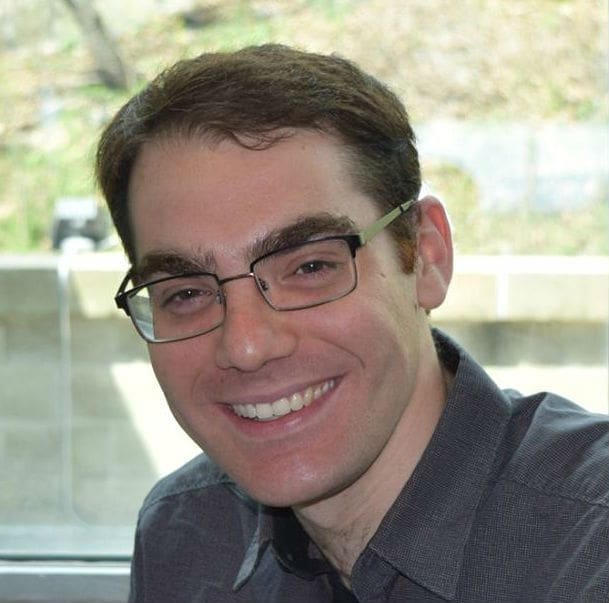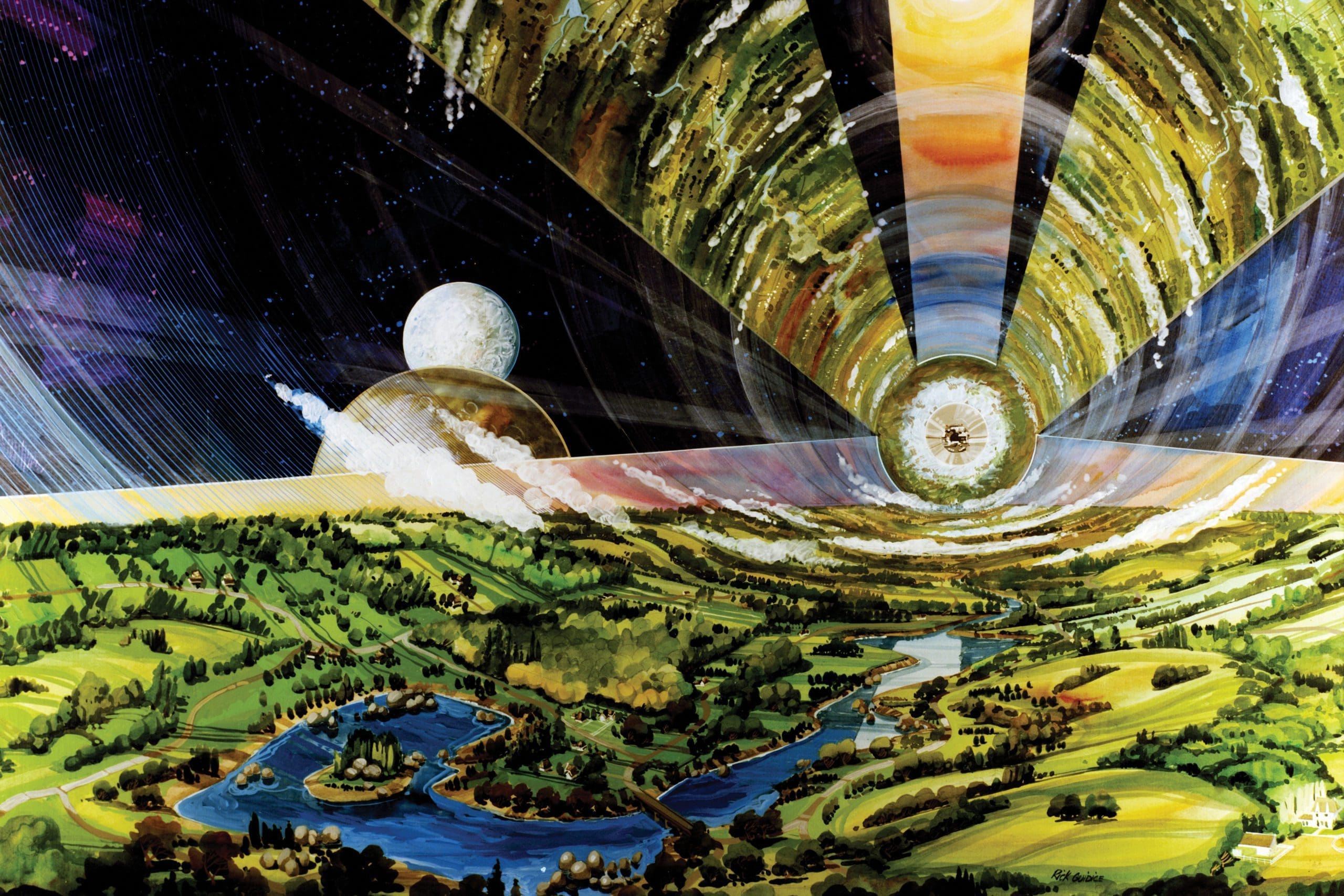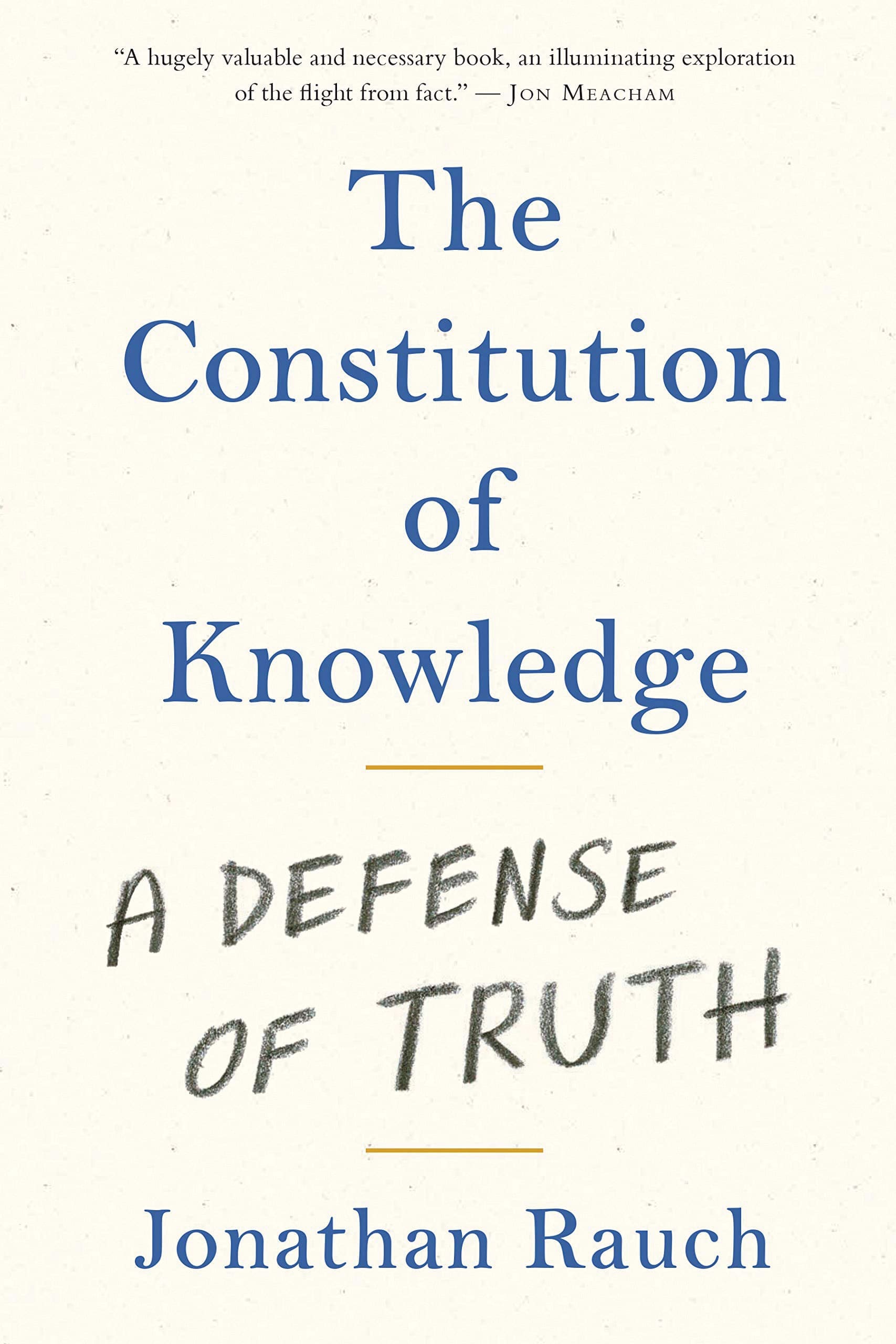When the Holy Blessed One prepared to create the first human being, the ministering angels divided into factions. Some urged, “don’t create man,” while the others urged, “create him.” . . . Kindness said, “create man, for he will perform acts of kindness.” Truth said, “do not create man, for he will be full of falsehoods.” Righteousness said, “create man, for he will perform acts of justice.” Peace said, “do not create man, for he will be full of strife!” What did the Holy Blessed one do? He seized Truth and hurled him to the earth, as it is written, “he hurled truth to the ground” (Daniel 8:12). Then the ministering angels said to the Holy Blessed One, “Ruler of all worlds, what have You done? Why have You so denigrated [Truth,] your own seal? Let Truth arise again from the earth!” Thus it is written, “let truth sprout up from the earth” (Psalms 8:12).”
—Genesis Rabbah, 8:8 (ca. 4th–5th centuries CE)
T
Truth itself is under siege. So argues Jonathan Rauch in his timely new book, The Constitution of Knowledge: A Defense of Truth. Over the course of centuries, Rauch explains, Western society developed a highly effective system for identifying truth and rejecting error. In this system, which Rauch terms “the constitution of knowledge,” we question received wisdom, reject personal authority, and insist that no fact is ever absolutely settled.
Now, however, this constitution is threatened. Nihilistic “trolls” flood the public sphere with falsehoods for the sheer thrill of it; demagogues traffic in conspiracy theories for the sake of fame or material gain, and geopolitical adversaries sow disinformation in an attempt to weaken American power. At the same time, a new wave of puritanical “cancellers” seeks to supplant empiricism with emotional safetyism and punish (rather than refute) challenges to orthodoxy. In so doing, they discourage experimentation and entrench error. And these trends are only exacerbated by an internet that rewards attention-seeking rather than truth.
Rauch’s historical account of the development of the constitution of knowledge and the challenges it now faces is deeply learned. But he—and we—would do well to consider the possibility that the threats Rauch identifies are not merely alien invaders. On the contrary, the nihilism and safetyism that now undermine the constitution’s foundations are products of the constitution’s own animating, critical spirit. Only when we recognize this, and thus the limits of the constitution itself, can we properly shore up its foundations.
The Constitution of Knowledge builds on Rauch’s previous work, particularly his 1993 book, Kindly Inquisitors. In Kindly Inquisitors, Rauch offered a powerful moral and theoretical defence of the American free-speech tradition. Freedom of speech, Rauch argued, is not simply a technical legal concept or a distinctive quirk of the American political system. Rather, a commitment to free speech facilitates a society’s ability to sort fact from fiction.
Both in Kindly Inquisitors and again in The Constitution of Knowledge, Rauch identifies two basic principles that underlie the sorting of fact from fiction. First, there is the empirical principle—the idea that no individual carries personal authority in determining truth. Facts cannot be decreed by priests and prophets; they must be available and checkable by every ordinary person; they must be verifiable. Second, there is the fallibility principle—the idea that there can never be a final say over what constitutes a truth. As we question and test our beliefs about the world over time, we may grow confident enough to consider something—for example, the existence of gravity—a fact. But we must always remain open to the possibility that our knowledge will be overthrown, expanded, or deepened.
But Rauch’s “constitution” is not just composed of individuals experimenting. A complex web of institutions—media outlets, courts, presses, universities, accrediting associations, professional fact-checkers, and government officials—interact with one another, examining claims, identifying error, and elevating and sustaining well-tested theories. It is thanks to this network of institutions that today gravity has more adherents than Aristotle’s metaphysics.
This system of intertwined knowledge-producing institutions, argues Rauch, mirrors our political constitution: both constitutions channel disagreement to produce compromise and solutions; both are composed of checks and balances rather than a single, arbitrary authority; and both rely not only on written rules and formal structures, but also popular commitments to a shared set of norms.
Over time, a society that follows these rules and sustains these institutions, that allows its citizens to publicly challenge each other’s beliefs and relies on networks to mediate disputes and promote the most resilient ideas, will be far better off. Instead of killing each other, we argue. And the strongest views, rather than the views of the strongest, will prevail. By contrast, societies that stifle dissent, whether out of authoritarian impulse or humanitarian concern, will wither and decline.
Rauch’s work thus falls squarely into the marketplace-of-ideas tradition of free-speech defence. And, like others in this tradition, he is right about the truth-producing benefits of free speech.
There are, however, other equally important justifications for the American free-speech tradition. Speech is not only how a society determines scientific truths; it is also how the individual comes to know his own mind and reflect on his own experiences. Speech is how friends and families and communities form bonds. Speech—as poetry and other forms of artistic expression—fills the world with beauty. The protection of these essential human goods—self-understanding, friendship, family, and beauty—provides independent reason to protect free speech.
Speech is also how citizens deliberate with one another, and in turn, how we govern ourselves. It is how we express and explain our preferences to our representatives, and how we persuade those with whom we disagree. Free speech is thus critical not only to truth but also to democracy.
At a time when the free-speech tradition is under attack, defenders of free speech would do well to emphasize that no single theory captures the goods and logic of that tradition.
There are still more reasons: unlike physical conduct, speech for the most part does not—and cannot—inflict direct harm. And the harms speech can inflict, which are usually psychological and emotional, are those that individual resilience can best resist. So while it is not quite true that “sticks and stone may break my bones, but words will never hurt me,” we can avoid the pain of wounding words by refusing to pay attention, and we can ensure they slip off our shoulders by internalizing a healthy dose of self-respect. Neither tactic, however, is likely to do much good in the face of a thug wielding a club. Government thus has far less of an interest in restricting speech than in regulating physical conduct.
I emphasize the many foundations of American free speech not because Rauch has done anything objectionable by focusing on just one. There are many other excellent books and scholars to advance these other arguments. But especially at a time when the free-speech tradition is under attack, defenders of free speech would do well to emphasize that no single theory captures the goods and logic of that tradition. We must insist that anyone urging exceptions and caveats to the free-speech tradition grapple not only with the dangers that speech restrictions pose to the development of knowledge but also with the other reasons for that tradition that fill our lives and provide them with meaning in many forms. The would-be suppressors of A Merchant of Venice must do more than establish that Shylock is unlikely to advance knowledge of Jews or Judaism; Shakespeare (and Aristotle and Kipling and J.K. Rowling) can rest secure thanks to the myriad of other, equally valid justifications for free speech.
But there is a second reason to highlight these other purposes of the free-speech tradition. And that is to highlight not the limits of Rauch’s argument but the limits of the constitution of knowledge itself.
Rauch repeatedly emphasizes that the domain of his epistemic constitution is expansive. Its reach is not limited to the hard sciences, but extends into law, government, media, and the social sciences. What’s more, this constitution also claims exclusive control over what constitutes “knowledge” at all, compelling the “understanding that outside of that commitment lies anarchy, a zone of chaos where reality splinters and truth loses its grip.”
The world outside of empirical criticism and professional consensus is not necessarily anarchy and chaos.
This is not quite right. The world outside of empirical criticism and professional consensus is not necessarily anarchy and chaos. It may also be a world of compromise and coexistence. And again, this is thanks to independent values of pluralism and toleration that are not necessarily grounded in truth-seeking. After all, the disagreements between Christians and Jews are not really a part of Rauch’s constitution. In the constitution of knowledge, a diversity of views plays an instrumental role—sparking debate and criticism and spurring the refinement of truth. But theological differences are not simply a halfway house to convergence, a stepping stone on the path to attaining universal truths. Interfaith arguments about the meaning of Isaiah 7 will not resolve the divinity of Jesus, and it would be as delusional as it is heretical to imagine otherwise. And yet, despite our disagreements, Jews and Christians are not at war.
What’s more, there is affirmative value in these deep disagreements, and in the variety of communities of understanding formed outside of Rauch’s constitution. As the late Lord Rabbi Jonathan Sacks explained, such diversity teaches the “dignity of difference.” The story of Genesis is the story of God’s rejection of universals in favour of particular communities. Humanity could not survive with a single covenant and a single language; these produced Noah’s flood and the dispersion of Babel. Instead, God recognized that human beings must live in particularistic relationships. God supplements the Noahide covenant with a particular covenant with Abraham. And while the Hebrew Bible is the record of this particular covenant, it is rife with allusions to God’s distinctive relationships with the other nations as well. “And as for Ishmael, I have heard you: behold, I have blessed him, and will make him fruitful, and will multiply him exceedingly; twelve princes shall come from him, and I will make him a great nation” (Genesis 17:20); “Do not distress the Moabites, and do not provoke them to war, for I will not give you any of their land as an inheritance, because I have given Ar to the children of Lot as an inheritance” (Deuteronomy 2:9); “‘Are you not like the Cushites to me, O people of Israel?’ declares the Lord. ‘Did I not bring up Israel from the land of Egypt, and the Philistines from Caphtor and the Syrians from Kir?’” (Amos 9:7).
Such particularistic communities are different, and in many ways opposed to Rauch’s constitution of knowledge. They are, to quote Rauch, not empirical and skeptical but “bias-confirming.” Of course, Rauch is too subtle a thinker to urge the wholesale abandonment of such communities and commitments. He recognizes that most of us “spend much of our lives in bias-confirming communities” that stand outside the constitution of knowledge. And he readily acknowledges that a person who lives his entire life according to the constitution of knowledge would be an inhuman automaton, “a Sherlock Holmes or Mr. Spock.” Rauch is, therefore, careful to insist that his constitution “embraces limits on its own authority” and “allows room for tradition, identity, rootedness.” He even offers as an example Francis Collins, a devout Christian and the director of the National Institute of Health, who straddles both the “bias-confirming” world of his faith with the “reality-based community” of science research and public policy.
Rauch praises Collins for setting aside his faith in the performance of his public work, noting approvingly that Collins “would never fund NIH research on exorcism as a treatment for glioblastoma, or tell a cancer patient to try prayer instead of chemotherapy.” This, I imagine, is true. But the distinction between private and public realms is too pat. And the consignment of other sources of wisdom—of intuition, tradition, and faith—to the private realm makes little sense.
Consider some of the most pressing contemporary questions: Whom do we vaccinate first, the most physically vulnerable or those with more years to live? Citizens or foreigners? What risks justify isolating children for months and obliterating livelihoods through lockdowns and closures? The constitution of knowledge may provide us with relevant information: rates of contagion, mortality statistics, economic predictions, and the like. But the answers to the hardest public questions turn on more than mere information. They require judgment. And judgment assimilates not just data but also values.
Rauch confesses that he is somewhat baffled by the devout scientist: “To an atheist like me, Collins is something of a puzzle.” And yet he finds Collins strangely compelling: “When I compare Francis Collins’ worldview with my own, I think mine is the more impoverished. He has access to two epistemic realms; I, only one.” Rauch’s confession is admirable, but not quite enough. For in the long term, Collins’s second realm is not only personally enriching; it is also a necessary foundation for the constitution itself.
Rauch identifies two great principles that underlie his constitution. The first is the fallibility rule: “no one gets the final say”; and the second is the empirical rule: “no one has personal authority.” He also identifies two great threats to the constitution of knowledge: a “troll epistemology” that, whether for glee or power, deliberately seeks to flood the public forum with disinformation; and a “cancel culture” that seeks to stamp out dissent in the name of protecting emotional safety. And yet he never considers the possibility that these two pairs might be related.
A direct line connects these two principles and these two threats. As Rauch repeatedly emphasizes, the constitution is not simply a set of formal rules; it is the critical spirit that underlies these rules. And so we must ask: What kind of human beings emerge from a society in which their primary—or too often, only—epistemic community is governed by an unrestrained, critical spirit? Who do we become when the only knowledge-building conversations in which we are engaged are critiques, where nothing is ever settled and where we are urged to challenge everyone?
Who do we become when the only knowledge-building conversations in which we are engaged are critiques, where nothing is ever settled and where we are urged to challenge everyone?
It seems to me quite natural that a person who is taught there can never be a final say may give up faith in the possibility, or at least the importance, of truth altogether. And it seems equally natural that a person who is taught to reject authority and hierarchy may well seek to tear those hierarchies down.
This is not to say that every one of today’s internet trolls is a philosophically sophisticated skeptic or nihilist. But in the world in which we live, which is still largely governed by Rauch’s constitution, you need not read Charles Sanders Peirce or Karl Popper to imbibe our era’s skeptical spirit. And particularly for the lonely or unreflective, the road from Pierce and Popper to Empiricus and Nietzsche, and from there to oblivion, is not so great.
Today’s trolls and cancellers are not, therefore, just threats to Rauch’s constitution; they are also its fruit.
Likewise, the democratizing ethos of the constitution of knowledge can, unrestrained, easily morph into a levelling wave. Those who have been taught to distrust priests and princes will find priests and princes (and view themselves as vulnerable penitents and peasants) even where there are none. And in the service of reducing hierarchy, they will be more likely to privilege claims of special vulnerability.
Today’s trolls and cancellers are not, therefore, just threats to Rauch’s constitution; they are also its fruit.
When we see this connection, we can also begin to imagine the cure. Because the problem is not so much with the constitution itself, but with its predominance. As long as we count ourselves not only as members of the “reality-based community” (and even that term suggests unhelpfully hegemonic pretensions) but also as members of communities with other sources of wisdom—religious tradition, spiritual inspiration, romantic recognition—we are somewhat inoculated against the excesses of that first community’s skeptical spirit.
Those of us who are committed to ultimate truths—confident in God’s existence and a parent’s love—are less likely to slip from “no final say” to nihilism. And those of us who bow (at least sometimes) before the authority of prophets, priests, and sages in our religious lives are, I think, less likely to leap from a secular “no personal authority” to the ritualized demonization of perceived power and the frantic coddling of perceived weakness.
Those of us who are committed to ultimate truths—confident in God’s existence and a parent’s love—are less likely to slip from “no final say” to nihilism.
Forgiveness, loyalty, grace, trust, and good faith are all, then, necessary for sustaining the constitution of knowledge. Without them, there can be no experimentation and no persuasion. And yet, these traits are not truly native to that constitution. And in some ways, they stand opposed to, and are always in danger of being tossed aside by, the radically skeptical spirit that pervades there. To nurture those traits, then, the constitution of knowledge is ultimately reliant on communities—and ways of understanding—beyond itself.



